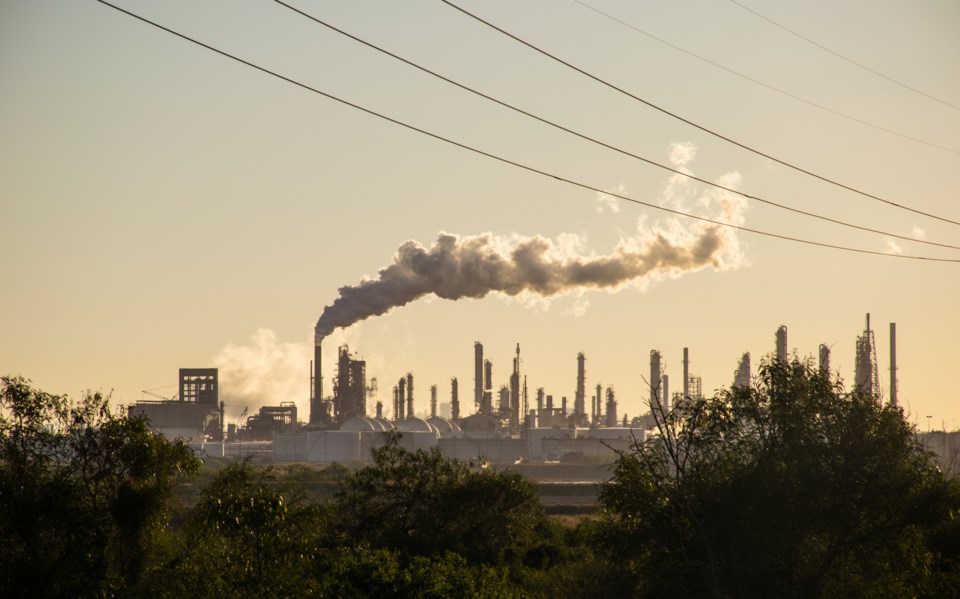Climate change. It’s on everybody’s mind these days, as well it should be.
Climate science is telling us (shouting at us!) that we have about 11 or 12 years to cut our carbon emissions in half to hold global temperatures at or below a 1.5 degree increase. This will avoid what is now rightly being called climate catastrophe.
Sounds scary, because cutting our carbon in half so quickly is a very, very big change. But here is the good news:
1) We know exactly what to do and how to do it, and it is entirely possible to meet the 12-year deadline. No new technology is required;
2) The transition away from carbon to clean energy will create an unprecedented job boom in all sectors and unprecedented business and innovation opportunities;
3) Solving the carbon problem will provide a host of benefits at the same time: global competitiveness will improve; we’ll have cleaner air, water, soil and food and lower health care costs; there will be a rapid decrease in international tensions and threat of war; there will be lower energy costs across the board for everyone; and much, much more.
A win-win
It’s a total win-win for everybody, but getting that message out there is proving to be a challenge. If it’s really so important, why isn’t the media full of it every day? Why isn’t everybody talking about it? Why don’t our elected leaders take action, real action, now, before it is too late?
Many reasons. Powerful vested interests are freaking out and spreading misinformation as quickly as possible. A tiny bit of doubt can slow things down wonderfully.
And sure, nobody really likes change, it’s just human nature. It’s tough enough getting along as it is. Don’t bother me, I’m busy!
More energy, not less
Well, let’s remember that it’s not that we will stop making energy. Far from it. We will probably be making more energy overall, but we’ll just be making it in different forms, mostly electricity and hydrogen rather than conventional fossil fuels.
That means all those currently employed in the conventional energy sector will be prime employee candidates and leaders in the rapidly expanding fields of wind, solar, geothermal, biofuels, hydrogen and the efficiency energy sectors. Take your pick.
Sure, there will be some retraining involved, but if you are in the energy sector, you must know that it is a technologically driven industry. And technology does one thing really well — when the time has come, it changes very quickly and without mercy. You have to change with it, or risk losing your business or job!
My story
Speaking of technologically driven professions and merciless change, I can’t help but think of my own story. As a life-long professional photographer, self-employed, I loved film. I had spent 40 years acquiring great skill in analogue photography and had a room full of the best film cameras and equipment money could buy. Then came digital.
Almost everything I knew, and all of my prized equipment, became obsolete overnight. Believe me, I did not want to change. But if I was going to stay in my profession, I had to! It was not an option.
I had to buy all new, very expensive digital photography equipment and the fastest computers, and I had to go into a steep multi-year learning curve. It was difficult and scary, but my business and profession came through it successfully. I ended up thriving in the new medium. And, of course, digital photography opened up so many new and amazing possibilities that I had never dreamed of!
So too the energy industry
From manpower to horsepower, from horsepower to coal, from coal to oil and gas, each energy transition has been sudden, unexpected and driven by major advances in science and technology. No exceptions.
Now, we are moving from oil and gas to more technically advanced sources of energy that are constantly and automatically renewed by the forces of nature, and produce zero pollution during operation.
As a global civilization just waking up from a long, comfortable energy slumber, we don’t really want to do this. But like my digital photography transition, it is not an option. And, like digital photography, it comes with amazing benefits, including economic prosperity and unlimited opportunity.
Don Pettit is vice-president of the Peace Energy Renewable Energy Cooperative. He can be reached at dpettit@pris.ca.



